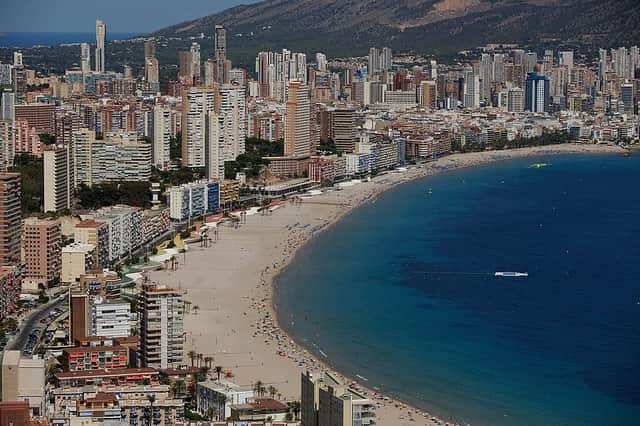Spain introduces strict new entry requirements in response to Omicron


Spain has imposed strict new entry requirements for tourists from today (1 December) in response to the Omicron Covid-19 variant.
The new strain, which was first detected in South Africa, has now been recorded in both Spain and the UK and is feared to spread more easily due to its large number of mutations.
Advertisement
Hide AdAdvertisement
Hide AdHealth experts are also concerned it could prove to be more resistant to current vaccines, although it is still too early for scientists to tell.
In response to the outbreak of cases, several countries are now strengthening their travel restrictions as part of efforts to keep infections under control.
This week the UK announced that all arrivals from abroad must now take a PCT test within two days of arrival and self-isolate until they receive a negative result, regardless of vaccination status.
Under previous rules, fully vaccinated travellers only had to take a day 2 lateral flow test and did not have to self-isolate unless they received a positive result.
Advertisement
Hide AdAdvertisement
Hide AdThe UK’s travel red list has also been expanded to include 10 African nations, including Angola, Botswana, Eswatini, Lesotho, Malawi, Mozambique, Namibia, South Africa, Zambia and Zimbabwe. Anyone arriving from these countries must now stay in hotel quarantine for 10 days.
Spain has also cracked down on its travel rules to help minimise the spread of the variant, with the new measures taking effect from 1 December.
Here’s what you need to know about the changes.
What are the entry requirements for Spain?
As of 1 December, all arrivals to Spain from the UK must present a Health Control Form and proof of vaccination on entry.
This rule applies to everyone over the age of 12.
Travellers are required to show they have received both doses of a two dose vaccine, or one dose of a one dose vaccine, at least 14 days prior to arrival in Spain.
Advertisement
Hide AdAdvertisement
Hide AdThe date of vaccination must be specified and the vaccine must be authorised by the European Medicines Agency or by the World Health Organisation. The Pfizer, Moderna and AstraZeneca jabs are among the vaccines that are accepted.
Spain will accept the UK’s NHS Covid Pass as proof of vaccination status.
Those who are travelling with a printed PDF proof of vaccination must ensure the certificate dates from 1 November in order for it to be scanned successfully.
A medical certificate of recovery from Covid-19 in the last six months prior to travel is not currently accepted for arrivals from the UK.
Advertisement
Hide AdAdvertisement
Hide AdUnder previous rules, Spain had allowed UK travellers to show proof of vaccination or a negative Covid-19 test to enter.
However, proof of a negative test will no longer be accepted under the new rules.
Spain does not currently have any testing or quarantine requirements on top of proving you are fully vaccinated.
However, if you are travelling to the Canary or Balearic islands from mainland Spain, you may be required to present a negative test depending on the region you are travelling from.
Advertisement
Hide AdAdvertisement
Hide AdWhat rules apply when I return?
All UK arrivals from Spain must complete a passenger locator form within 48 hours before departure.
Travellers must then take a PCR test on or before day two of arrival and self-isolate until they receive a negative result.
If the test comes back positive, travellers must quarantine for 10 days.
Under previous rules, people who were fully vaccinated could take a cheaper lateral flow test and were not required to self-isolate until they received a positive result.
Advertisement
Hide AdAdvertisement
Hide AdThose who are not fully vaccinated must take a pre-departure test (PCR or lateral flow) within three days before travelling to the UK, as well as two post-arrival PCR tests, and must quarantine for 10 days.
A test should be taken on day two and day eight.
Travellers can opt to end quarantine early by paying for a private test through the Test to Release scheme if the result is negative. This scheme is voluntary and only applies to those quarantining in England.
This article originally appeared on our sister site, NationalWorld.